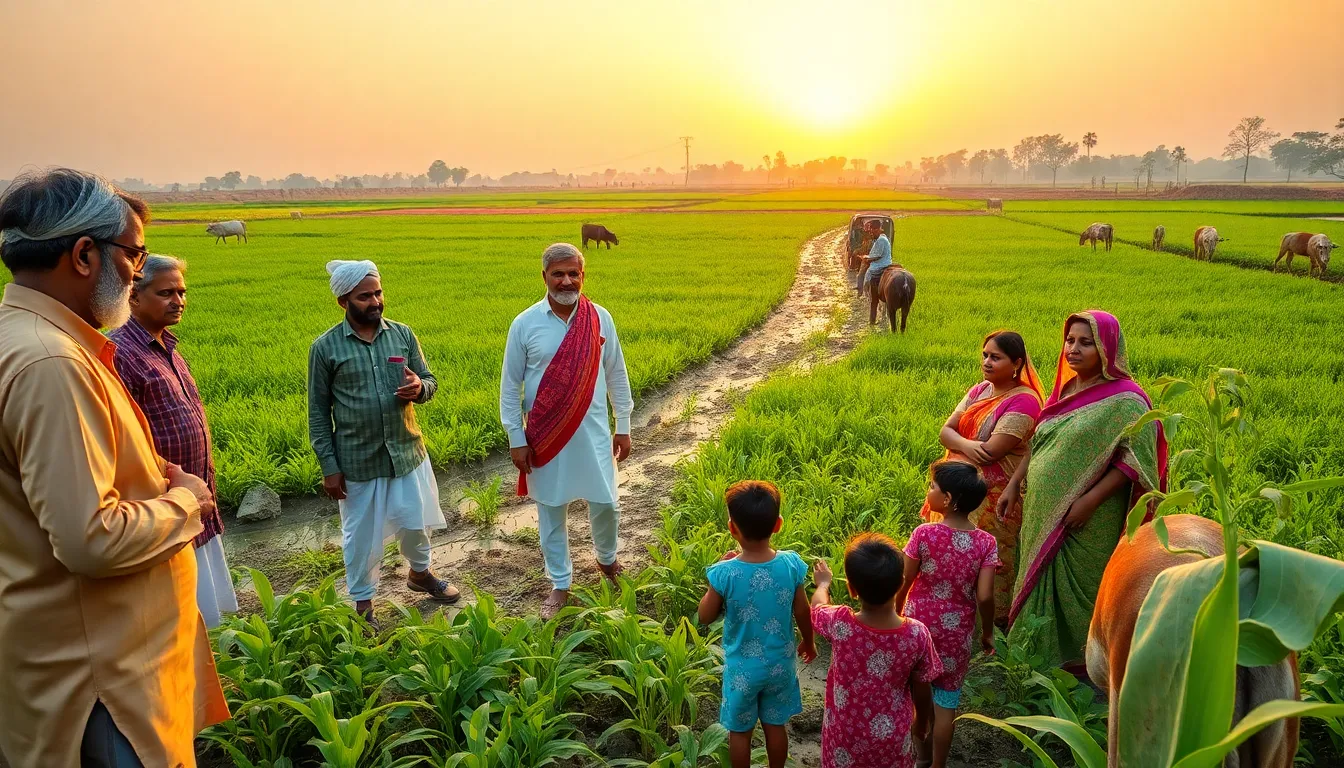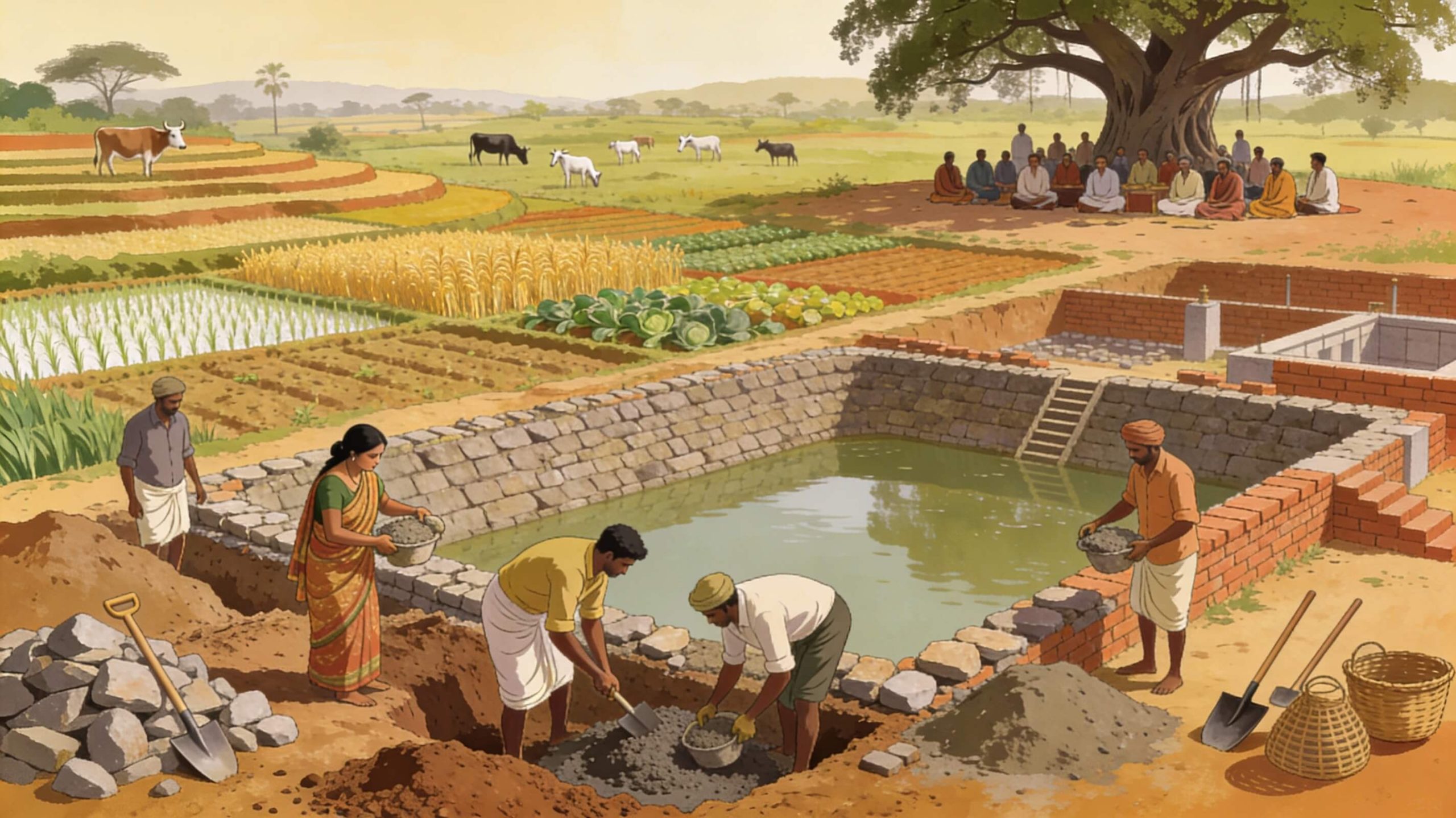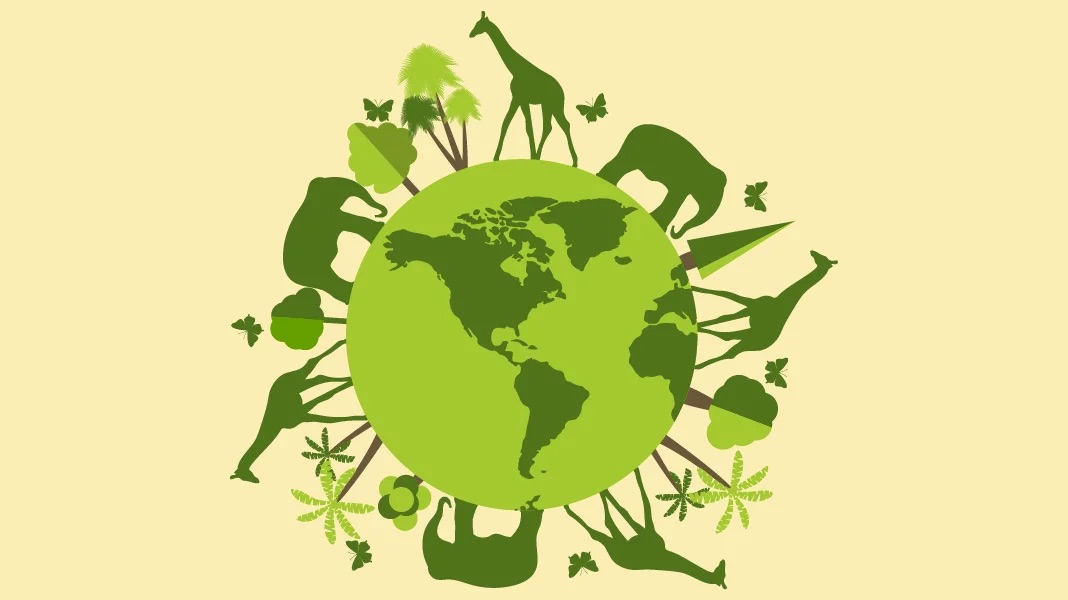The Viksit Krishi Sankalp Abhiyan (VKSA) is an ambitious campaign launched by the Indian government to transform agriculture in India. This initiative aims to reach over 1.5 crore farmers across the country. The VKSA campaign is designed to empower farmers by providing them with modern scientific knowledge and awareness about available government schemes. The campaign started on May 29, 2025, and will run until June 12, 2025.
The VKSA is led by the Union Minister of Agriculture and Farmers’ Welfare, Shri Shivraj Singh Chouhan. During the launch, he emphasized the importance of two-way communication between farmers and scientists. The campaign mobilizes over 16,000 scientists who will engage directly with farmers in 65,000 villages. This engagement is essential for addressing the real challenges farmers face and sharing solutions that can improve their livelihoods.
Throughout the campaign, scientists and agricultural experts are visiting villages to provide hands-on training. They are focusing on topics like crop selection, improved seed varieties, soil management, and sustainable farming practices. The campaign also highlights the significance of the fisheries sector in ensuring food security and rural livelihoods.
In West Bengal, the Indian Council of Agricultural Research (ICAR) and the Central Research Institute for Jute and Allied Fibres (CRIJAF) have taken the lead in this outreach. They have successfully engaged over 153,931 farmers across 1,157 villages. This success showcases the potential of community-led participation under the national vision of Viksit Bharat@2047.
The VKSA not only focuses on information dissemination but also encourages reciprocal learning. Farmers provide feedback and share their traditional knowledge, which can help shape future research and extension strategies. This exchange of information is vital for creating region-specific innovations that cater to the unique needs of farmers in different areas.
A notable highlight of the campaign was the release of a new fish vaccine called “CIFA Argu VAX–I.” This vaccine, developed by ICAR, targets parasitic infections in fish, representing a significant breakthrough in aquaculture health management. By improving fish health, the vaccine aims to reduce economic losses in the fisheries sector and enhance the livelihoods of fish farmers.
During the VKSA campaign, various exhibitions have been organized to showcase innovations and products from Self Help Groups (SHGs) and other agricultural institutions. These exhibitions reflect community involvement and grassroots innovation. Additionally, farmers have received soil health cards and seeds for kharif crops to further enhance their agricultural practices.
The VKSA campaign has been a massive success in various states. In Arunachal Pradesh, for instance, it connected over 1.25 lakh farmers across 1,560 villages. The campaign also emphasized sustainable practices that align with the ecological profiles of different regions. Farmers were trained on practices such as crop rotation and organic pest management, ensuring they adopt environmentally friendly methods.
As the VKSA continues, the government encourages all stakeholders, including citizens and state officials, to work together. This collective effort is crucial for ensuring that farmers benefit from the latest technologies and government schemes. The VKSA is not just a campaign; it is a movement towards a resilient and self-reliant agricultural sector in India.
In conclusion, the Viksit Krishi Sankalp Abhiyan represents a significant step forward in India’s agricultural transformation. By empowering farmers through knowledge and resources, the government aims to build a future-ready agricultural sector that can meet the challenges of the coming years. Farmers are at the heart of this initiative, and their participation is vital for the success of VKSA and the vision of a developed India.





